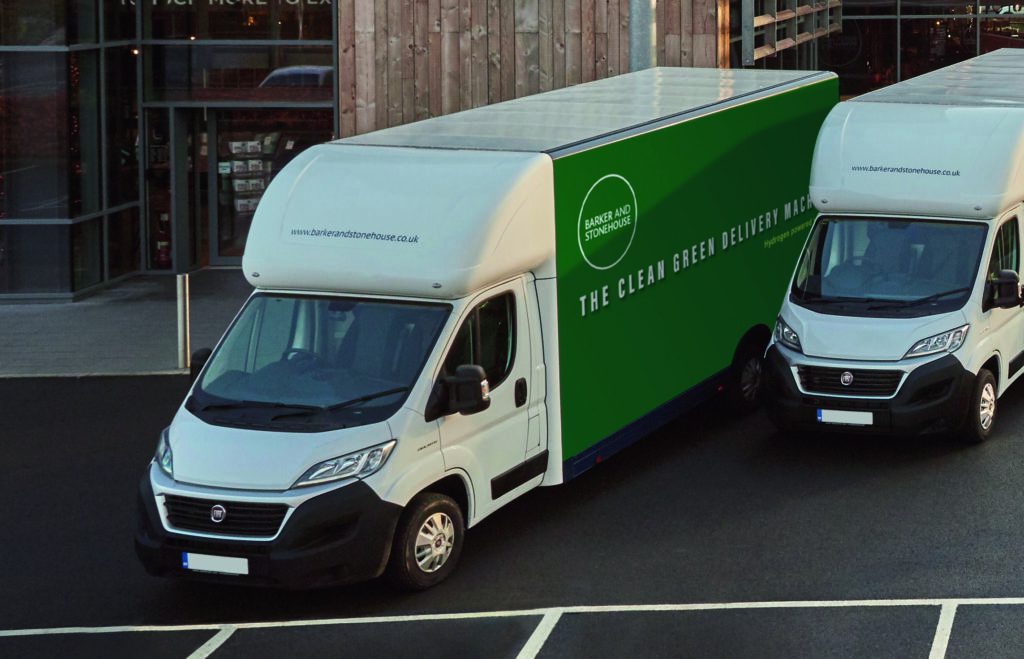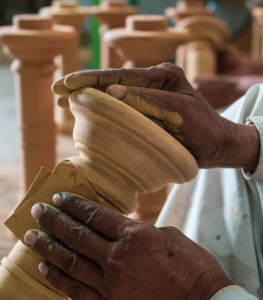In the next part of our ongoing sustainable series, we take a look at the latest updates from furniture retailer Barker and Stonehouse, homeware retailer Dunelm and furnishings and accessories retailer OKA.
Dunelm
Dunelm has stepped up its sustainability commitment by having lower impact operations through an acceleration of its extensive solar panel installation project.
This financial year will see 2,642 panels installed across Dunelm’s portfolio. The installation of photovoltaic (PV) panels has recently been completed at five stores, including 442 at the Bristol store, 410 at Derby, 356 at Romford and 398 at Swansea. 262 panels have also been installed on the roof at Dunelm’s Head Office in Syston, Leicester.
The business plans to install PV panels across another three sites before the end of June 2024 which, in total, will produce approximately 337,302 kWh’s of electricity as the business continues to decarbonise its operations.
Despite the expansion of its store portfolio, now at 183 stores following three recent openings, overall store electricity usage at Dunelm has remained flat, in line with 2019 usage, with 99.7% of energy from renewable sources in the last financial year.
Alongside the solar panel project, Dunelm is improving sustainability across its operations, including a focus on energy efficiency across its sites:
- Transitioned to Renewable Energy Guarantees of Origin (REGO) qualifying electricity sources for the majority of sites in 2019
- Engaging colleagues to promote energy efficiency
- Replacing gas-fired heating and refrigerants with lower-carbon alternatives
- Increasing recycling of waste
Dunelm’s approach to sustainability is centred on being Good & Circular, with a focus on Planet, Communities and People. Steve Barton, Director of Property at Dunelm, commented: “We’re very proud to be stepping up the solar panel roll-out across our sites. It’s just one part of our commitment to reducing our environmental impact and in line with our ambition to reach net zero by 2040.”

Barker and Stonehouse
Barker and Stonehouse are also stepping up its green credentials via a trial of a new prototype hydrogen delivery vehicle, which will see the retailer continue its commitment to reducing its emissions above and beyond its own carbon footprint.
Barker and Stonehouse are proud to be a Carbon Neutral Plus company, a status it achieved in April 2021, making the business the first UK furniture retailer to receive this certification. The business’ new hydrogen delivery vehicle emits zero emissions and is highly energy efficient, marking the retailer’s first step in introducing a more environmentally friendly delivery service.
The vehicle has been two years in the making, with the prototype currently based at Barker and Stonehouse’s Lincoln test centre where delivery drivers will trial its use for 12 months to assess whether its usage is effective whilst delivering environmental gains. The trial will start in July (2024).
If found to be viable, the company’s ambition would be to roll these vehicles out on a national basis, gradually replacing its current delivery fleet.
In line with its sustainability strategy, the company is exploring a range of options for its delivery vehicles as part of an ongoing process. The strategy also includes initiatives to optimise delivery routes for efficiency, invest in renewable energy sources for its stores and warehouses and utilise sustainable packaging materials where possible. By implementing these initiatives, Barker and Stonehouse is setting a new standard for sustainable deliveries across the UK.
As highlighted, Barker and Stonehouse achieved Carbon Neutral Plus status back in 2021, meaning it is now reducing its emissions beyond its own carbon footprint. This is the result of a decade of investment in new technologies and new processes, covering every aspect of the business, from freight and logistics, to store design and its furniture manufacturing suppliers.
James Barker, Managing Director of Barker and Stonehouse, commented: “Further exploring the use of hydrogen-powered vehicles forms part of our commitment to environmental responsibility and aligns with our goal of minimising our impact on the planet. We are proud to be pioneers in exploring the possibilities of this exciting potential shift.”

OKA
As for OKA, it’s sustainability vision is to work with global craftsmen and women to create unique and timeless pieces that are designed to inspire practical living while respecting the planet, people and future generations. The company prepares a Sustainability Report each year, with its most recent published for 2022 identifies current progress, including a 31% reduction in total landfill waste and 27.1 tonnes reduction in paper use for direct marketing activity against the prior year.
Furthermore, OKA became a Certified B Corporation in 2023, a significant milestone in its sustainability journey. “This achievement reflects our ongoing commitment to our strategic pillars, including our mission to reduce our impact on the planet and positively contribute to the communities we interact with,” OKA said.
“B Corp certification is not just a badge of honour; it represents a powerful commitment at OKA to environmental and social responsibility. We know we still have a way to go, but we are committed to making better choices every day. Keep your eyes peeled for more updates and initiatives, which we will be sharing soon.
“This certification from non-profit organisation B Lab demonstrates our dedication to holding ourselves accountable to the highest standards of sustainability and transparency, where every action, no matter the size, counts. Through this certification, we will now appear on B Lab’s directory of B Corp-certified businesses, joining a global community of like-minded companies that prioritise the planet and people alongside profitability.”
As part of this achievement, OKA is actively taking steps to reduce the mark it leaves on the planet. It has set achievable Science Based Targets, which are aligned with the Paris Agreement’s target of limiting global warming to a 1.5 degrees Celsius increase by 2030. In 2022, 56.2% of emissions came from renewable resources (versus 2% in 2021).
“We have long-standing relationships with our suppliers, who we expect to comply with our Supplier Code of Conduct,” OKA adds. “Our top 10 suppliers have been assessed by third-party auditors for their compliance with human rights and labour rights in China, India, Indonesia and Vietnam. We have made active changes to reduce waste, such as reusing our cardboard boxes in stores and returning flat-packed boxes to our Warehouse for reuse.”
As part of this initiative, OKA offers an ongoing Spare Parts Project, extending its products’ lifecycles, while also rehoming products to community projects and charities. Furthermore, improving yields from fabric off-cut imperfections helps reduce wastage during upholstery production. “What we are always working on and championing; the building blocks of our journey to being a more conscious and sustainable business.”
www.dunelm.com / www.barkerandstonehouse.co.uk / www.oka.com















